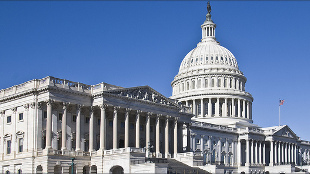 FLICKR, RON COGSWELLIt doesn’t matter how they’ve voted or to which political party they belong: scientists ought to connect with their government representatives, said members of an American Society for Cell Biology (ASCB) panel convened at the organization’s annual meeting this week (December 9).
FLICKR, RON COGSWELLIt doesn’t matter how they’ve voted or to which political party they belong: scientists ought to connect with their government representatives, said members of an American Society for Cell Biology (ASCB) panel convened at the organization’s annual meeting this week (December 9).
“It’s an obligation for all of us in the scientific community to let our elected officials know about the importance of our work,” said Yale University’s Thomas Pollard. “We’re the only people to look out for our community here.”
When speaking with politicians, Pollard suggested refraining from jargon, and instead using anecdotes, figures of speech, and analogies. “Stick to plain English, and you’re in business,” he said.
Pinar Gurel of Darmouth College noted that scientists at all career stages ought to get involved. “You don’t have to be an established scientist to go [to Capitol Hill] and tell people how important your work is,” she said.
The Fred Hutchinson Cancer Research Center’s Sue Biggins said she was surprised to find that one of her representative’s ...















